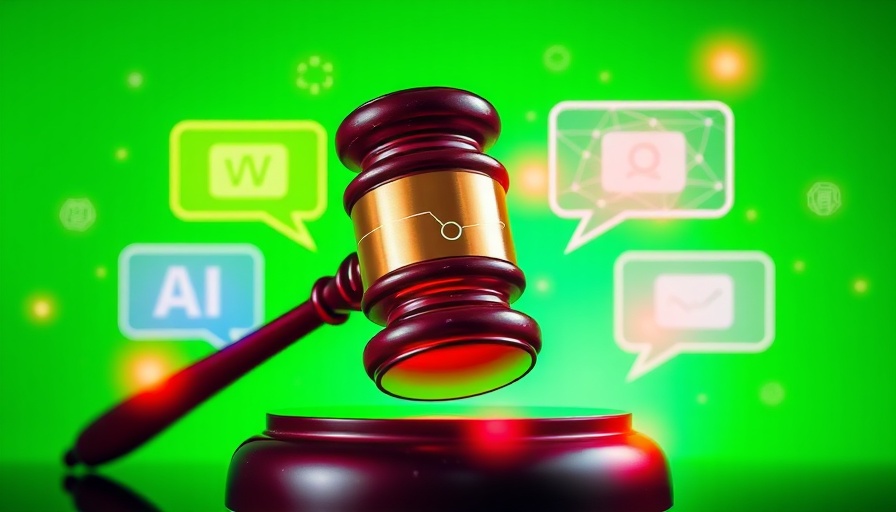
AI in the Courtroom: Innovation or Risk?
As technology evolves, artificial intelligence is making its way into the judicial system. Recent reports highlight judges who are implementing AI tools to streamline legal processes. With court backlogs impacting justice delivery, advocates argue that AI can assist in legal research, case summaries, and drafting orders. However, the leap to integrate AI into legal frameworks raises questions about reliability and oversight.
The Perils of AI Missteps in Legal Proceedings
Instances where AI-generated documents have referred to fictitious cases demonstrate the risks involved in relying heavily on these technologies. A notable case featured a Stanford professor—who specializes in AI—submitting testimony that included fabricated elements. These errors challenge the perceived competence of AI systems within crucial domains.
GPT-5: Hopes and Cautions
OpenAI's GPT-5 model was anticipated to represent a significant breakthrough in AI's capabilities. Despite initial high hopes for its potential impact on fields like healthcare and law, the reality reflects a more cautious approach. OpenAI has started to recommend its model for health-related inquiries, which is concerning given the model’s shortcomings. This shift points to an intersection of promise and peril in applying AI technology to sensitive areas, including health.
Where Do We Go from Here?
As judicial and healthcare systems experiment with AI, it’s clear that thoughtful integration is necessary. Stakeholders must weigh the benefits of efficiency against the risks of misinformation and misapplication. AI’s role is evolving, but its acceptance requires rigorous standards and vigilant oversight.
 Add Row
Add Row  Add
Add 




Write A Comment